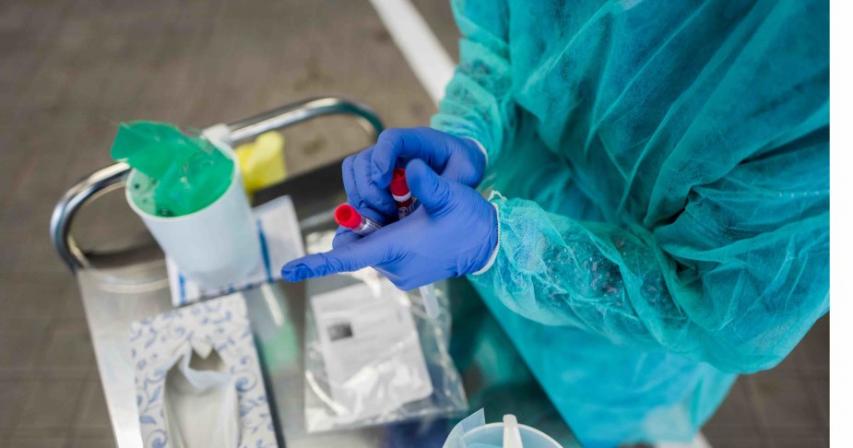QF’s plan to empower the next generation of precision medicine workers
- 4 years ago

Two women trained in precision medicine discuss their goals for the field and its importance to the healthcare industry.
Precision medicine holds immense potential for better health outcomes through personalized diagnoses and treatment in the future. But the implementation of precision medicine requires optimization of resources, and more importantly, education and training to equip workers in the emerging field with the necessary skills.
Playing an essential role in this workforce are women in Qatar, opting to study and build their careers in this field. One such example, is Qatar University graduate, Tasnim Fadl. Fadl completed her Master’s in genetic counseling at Qatar University and joined Qatar Foundation’s (QF’s) Qatar Genome Programme (QGP) as a research assistant. The launch of this Master’s program at Qatar University was a result of the joining of forces working in the field of precision medicine in Qatar, including QGP, to ensure the availability of trained workers in precision medicine in Qatar.
During the two-year program, students delve into comprehensive study of genetics, as well as psychological and psychosocial aspects of genetic diseases. The program uses a combination of theoretical lectures and practical experience with patients in the hospital. Once completed, graduates are qualified to be practicing genetic counselors. A genetic counselor works as a member of a healthcare team helping patients and their families interpret the results of their genetic testing, providing them with counseling, and serving as patient advocates.
While genetic testing and genome sequencing are in full swing in Qatar at QF facilities like QGP, Qatar Biobank, Sidra Medicine, as well as at Hamad Medical Corporation (HMC), genetic counseling is not as mainstream yet. Through her expertise, Fadl hopes to be able to work closely with patients who undergo genetic testing and genome sequencing to bring them into the conversation too.
“I chose this field specifically because prior to this I was working exclusively on research in laboratories. While that is immensely meaningful work, I had a strong desire to work directly with patients. In addition, this field is all too new, and there are very few genetic counselors in the country,” Fadl said.

“It is important to reinforce the representation of women across scientific disciplines to ensure their effective participation in the advancement of science. There is no doubt in the pivotal role played by women internationally and locally as women in Qatar have proven time and again through their contributions in a number of fields,” she added.
Another woman making strides in the precision medicine workforce is Dalal Alsharshani, a graduate of the Master’s of Science in Genomics and Precision Medicine program at QF’s Hamad Bin Khalifa University’s College of Health and Life Sciences (HBKU CHLS). The program enhances students’ understanding of disease mechanisms and improves several aspects of clinical practice, including diagnostics, prognostics and early disease detection.
“This field has advanced my career goals by adding to my skills, both critical and creative, in working with patients and with team,” said Dalal Alsharshani

Alsharshani opted to pursue this career field because she believes in the future of precision medicine as a healthcare solution that will tailor medicine to a degree that will ensure care of the highest quality.
Currently working as a nurse at the HMC Heart Hospital, Alsharshani hopes to lead the professional development of nurses in her department toward precision medicine by adding to their knowledge of and promoting the field in nursing education and clinical practice.
“This field has advanced my career goals by adding to my skills, both critical and creative, in working with patients and with team. It allows me to apply the principles of precision medicine on a daily basis by educating patients about disease pathophysiology, explaining treatment options, and how they can benefit them,” she said.
Most healthcare workers are unaware or untrained in the field of genomics and precision medicine, according to Alsharshani and this is a critical gap that needs to be addressed.
Encouraging and providing opportunities for women to be a part of these scientific spaces plays a huge role in address it, and institutes like HBKU, Qatar Genome Programme, and Qatar University, are playing a significant role in doing just that.
Source: Qatar Foundation
Comments